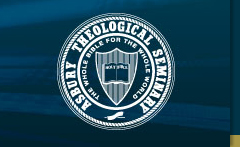This work is accessible only to Asbury Theological Seminary faculty, staff, and students. Off-Campus users should request the resource through our Library Loan system or contact the Help Desk for assistance.
Files
Download Full Text (8.8 MB)
Summary
This study details a model for holistic Christian ministry which can be adopted by churches to help alleviate extreme poverty in Bunyore, Kenya. The model presented here is faithful to biblical truth and culturally relevant. If well implemented, the model can help Christians in Bunyore meet both their spiritual and physical needs, thereby demonstrating that Good News is indeed good to those in extreme poverty. The model has a spiritual element which makes it Holistic Christian Transformational Development (as it is termed here). This model stands in distinction from other models introduced by secular bodies which lack this spiritual element, thereby not qualifying as holistic Christian ministry. The aim of the model in this study is to help churches in Bunyore recover the apostolic way of doing ministry in a context of extreme poverty. The apostolic way is rooted and modeled in very early Christianity in which people's spiritual and physical needs were both taken seriously and met in a culturally relevant manner. The findings documented in this study are a result of an analysis of data collected using interviews, focus groups, participant observation and library research. The study employs several theological perspectives, including biblical-theological insights, models of holistic development, Neocolonial Theory, and Transformational Leadership Theory. This study discusses a range of factors which contribute to extreme poverty. It also discusses the survival mechanisms improvised by communities studied in order to cope with food scarcity. It documents a serious gender and age imbalance in Bunyore, women and youth being largely excluded from important community decision-making process, even though they play a crucial role in extreme poverty alleviation. A brief description of Bunyore as the focus area in this study and Abanyole community as the people group occupying this area has been given. The study found that the majority of the churches in Bunyore are not confronting the extreme poverty which is rampant. Only a few churches have started getting involved in poverty alleviation and their efforts are still inadequate. In response, the study encourages churches to participate in practical ways. The study proposes and discusses in detail a Holistic Transformational Development model which churches can adopt and adapt in order to help alleviate extreme poverty. Inadequate government effort in alleviating extreme poverty underscores the need for churches in Bunyore to get involved in social action. The study proposes a range of measures which can be taken in order to significantly reduce extreme poverty.
OCLC
163143601
Publication Date
January 2007
Publisher
Asbury Theological Seminary
Keywords
Poor:, News, Model, Alela, Religious, Bunyore, 2007, --, 163143601, Church, Moses, Economic, Ministry, aspects, A, Good, history, for, Holistic, work, poor, Christianity, Poverty, Kenya, conditions
Language
English


Comments
xi, 320 leaves ; 28 cm. Includes bibliographical references (leaves 299-320). Old URL: http://ecommons.asburyseminary.edu/xmlui/handle/10910/10390